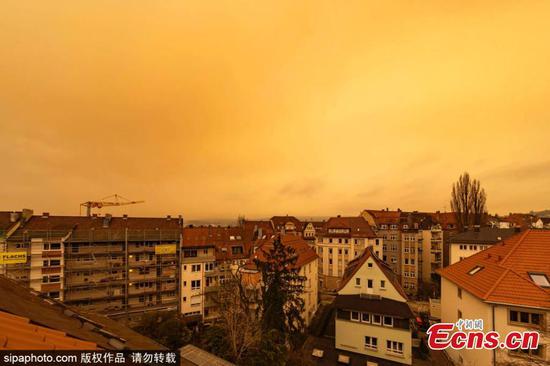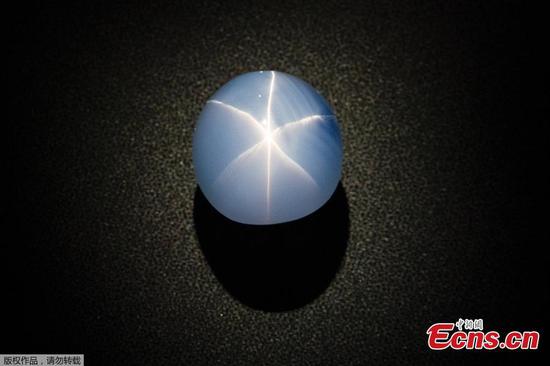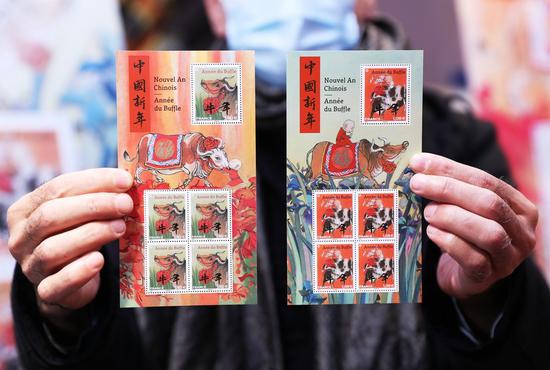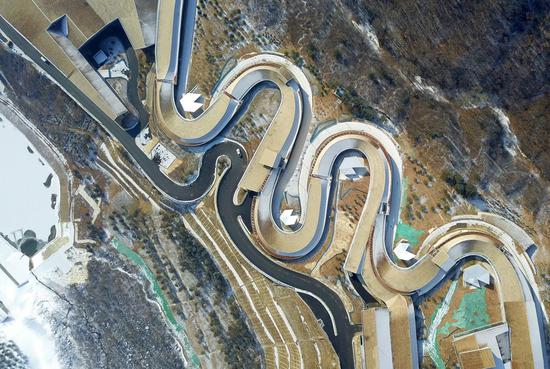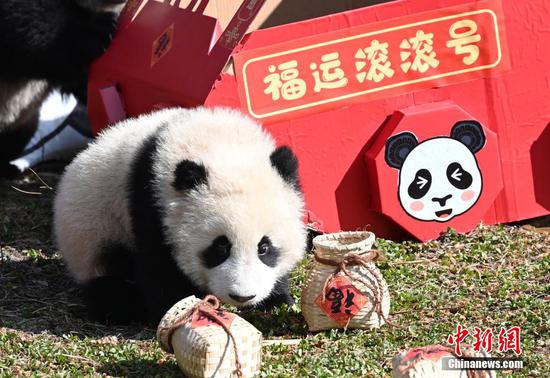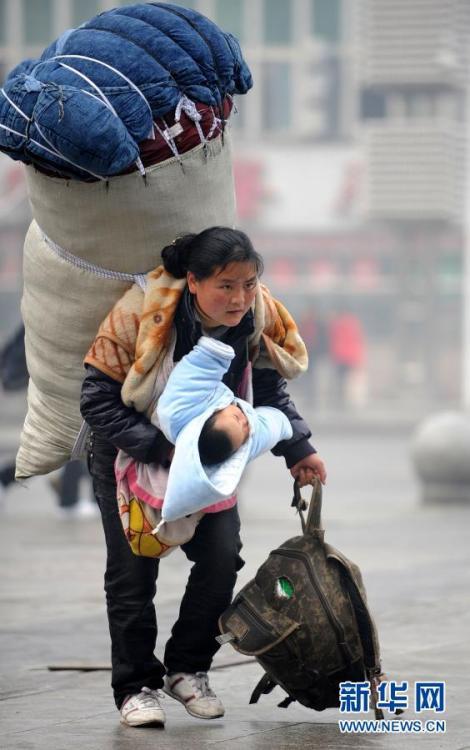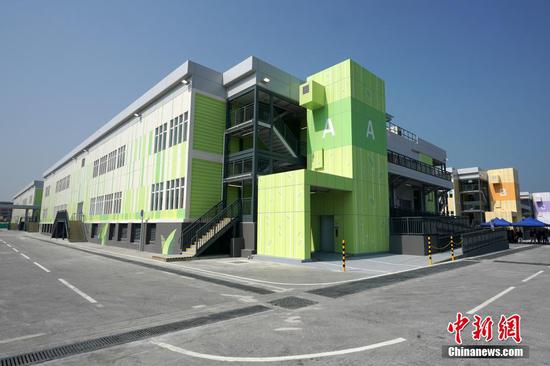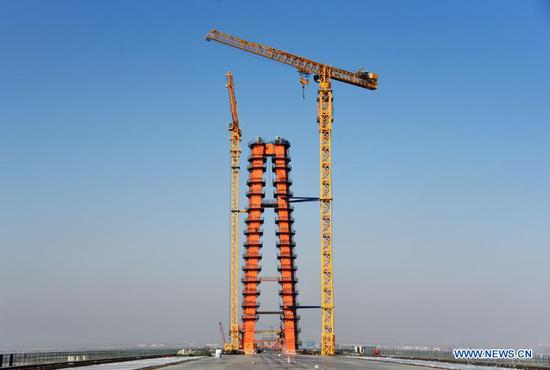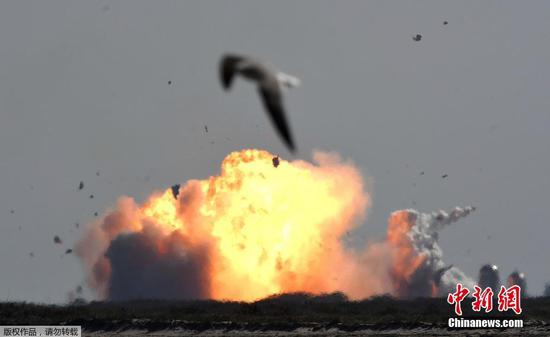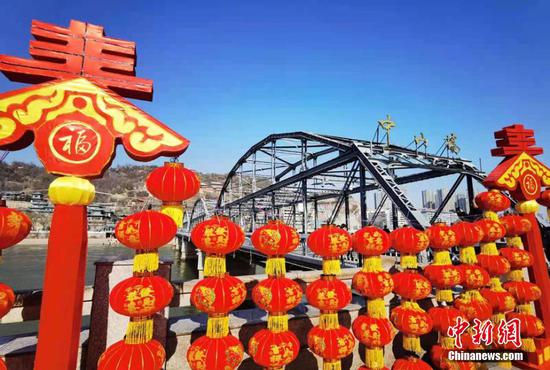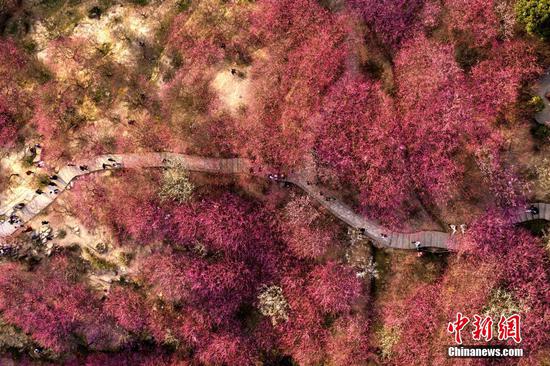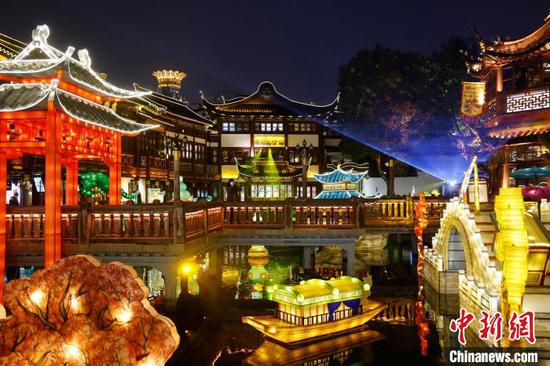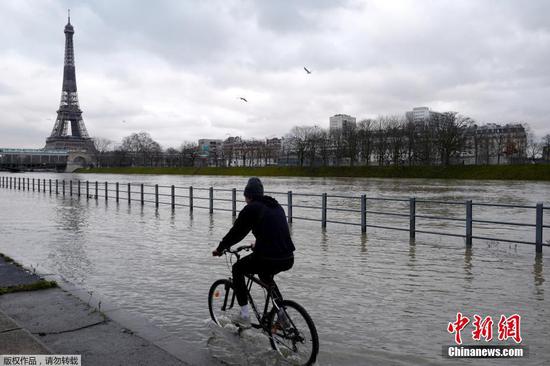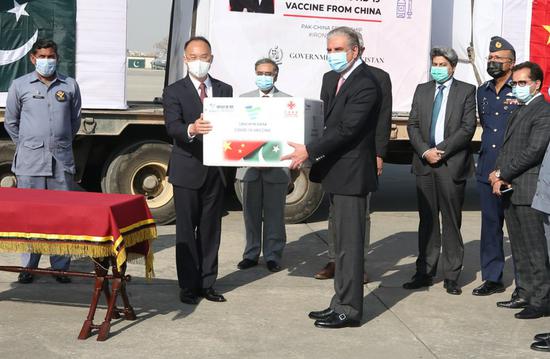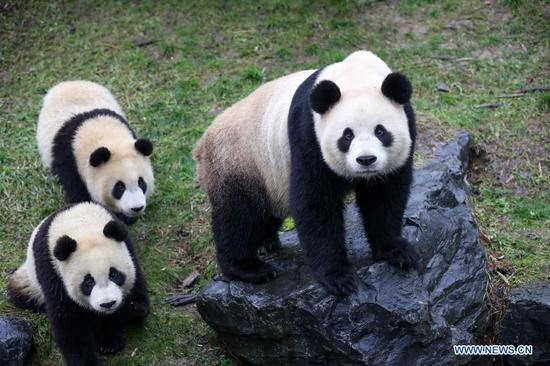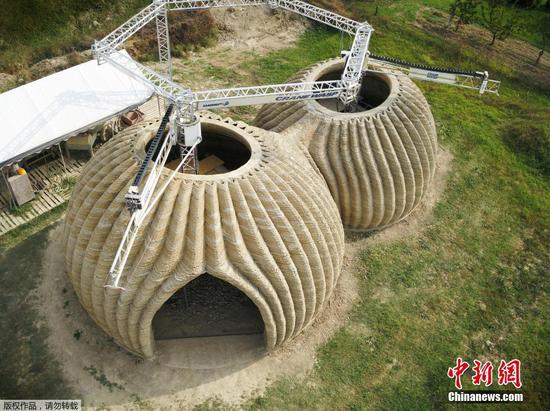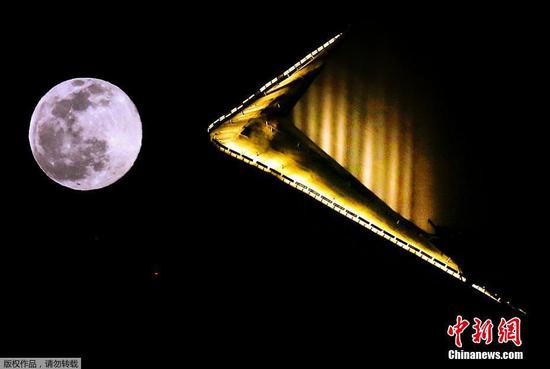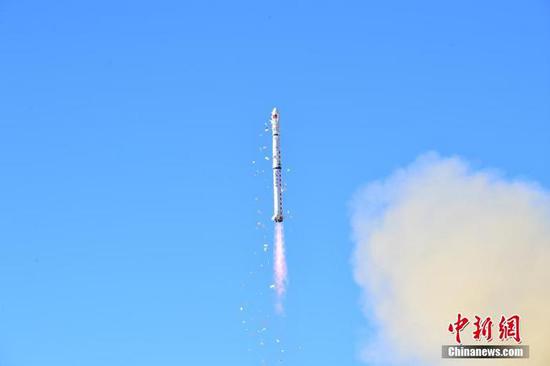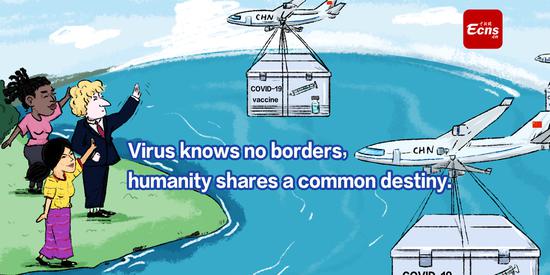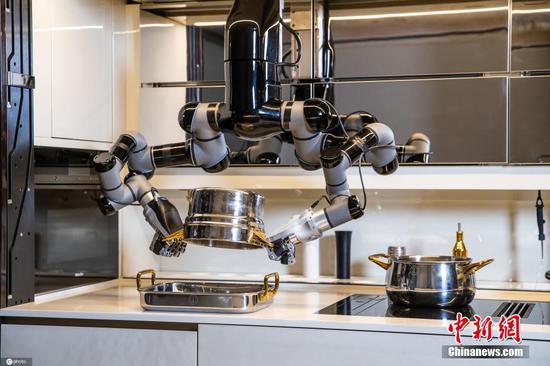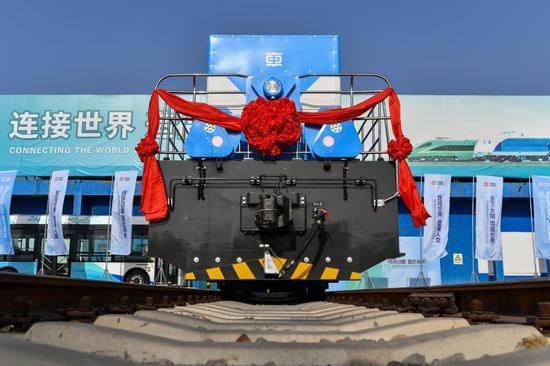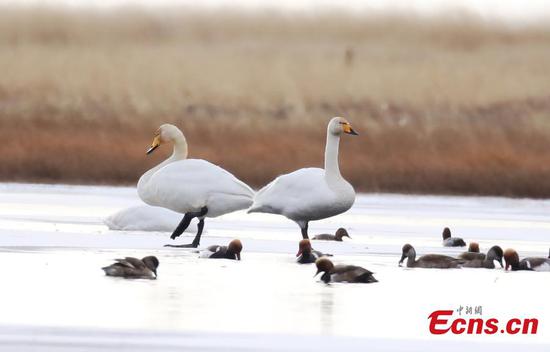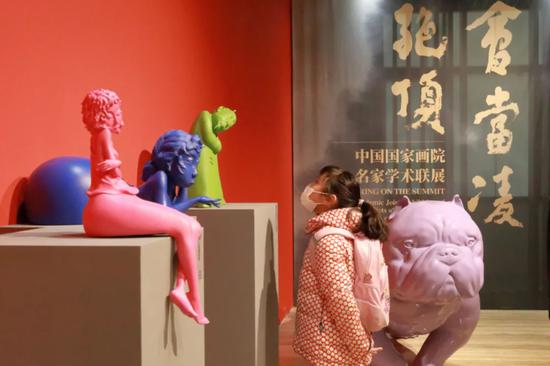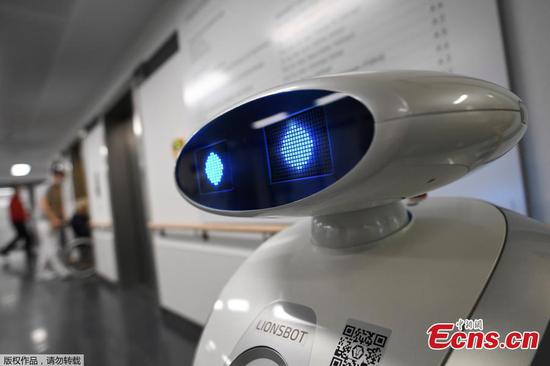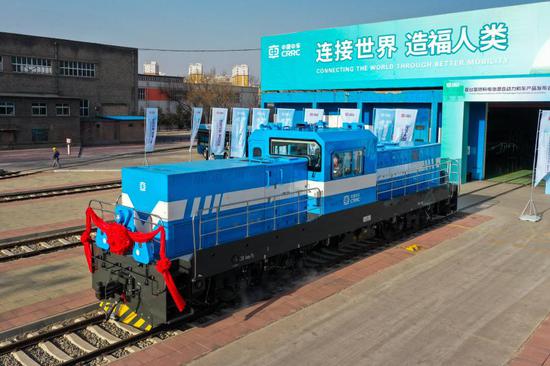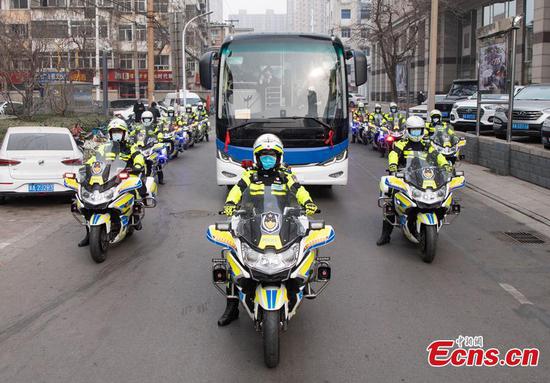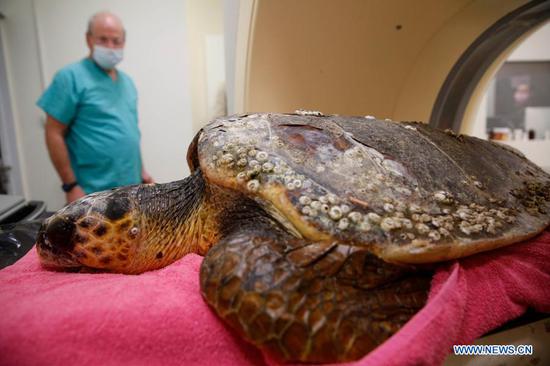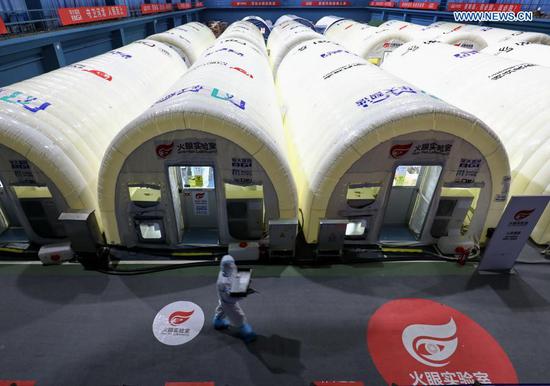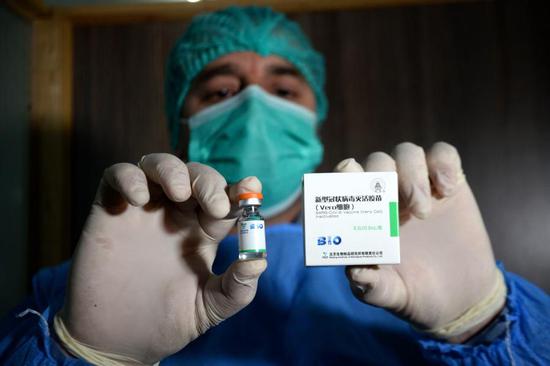
A medical worker shows China's COVID-19 vaccine at a hospital in Peshawar, Pakistan, Feb. 3, 2021. (Photo by Umar Qayyum/Xinhua)
The first batch of China's Sinopharm vaccines is due to arrive in Cambodia on Sunday to help launch an inoculation drive against COVID-19 starting from the upcoming Wednesday.
China has been racing to help Asian countries fight the coronavirus pandemic with home-developed COVID-19 vaccines, honoring its commitment to making vaccines a global public good once available.
RAYS OF HOPE
Pakistan has become the first country to receive China's vaccine aid after a batch of doses developed by China's Sinopharm arrived in the country on Monday from Beijing via a special Pakistan Air Force aircraft.
With over half a million infections and more than 11,000 deaths, the South Asian country is struggling against the second wave of the deadly virus.
For Muhammad Jan, an ambulance driver at Pakistan Institute of Medical Sciences, the arrival of Chinese vaccines "shed light at the end of the tunnel" for the frontline Pakistani medical workers.
"I have been watching the close ties between Pakistan and China and China's support to my country in every hour of need," Jan told Xinhua.
The 32-year-old bread earner of a family of five has been taking severe COVID-19 patients to hospital and transporting those who succumbed to the virus to cemeteries for months in the country's capital Islamabad and the adjoining provinces.
Several ambulance drivers he knows have contracted the virus and even one of his acquaintances died of the disease. Anxiety grows in Jan's mind about contracting the virus and passing it on to his three kids and wife, but he has never thought of quitting the job.
The Drug Regulatory Authority of Pakistan approved two vaccines for emergency use last month, one of which is developed by Sinopharm.
Nausheen Hamid, Pakistan's Parliamentary Secretary on National Health Services Regulations and Coordination, told Xinhua that the vaccines would be administered to doctors, paramedics and supporting staff including ambulance drivers and cleaners, who either work in COVID-19 wards or have direct interactions with COVID-19 patients.
"My wife has been insisting on my quitting the job and finding livelihood somewhere else. Now it's such a relief," he said. "I am eagerly awaiting the day when I will get the vaccine administered, because it will enable me to do my job in a secure way."
Commenting on the vaccine aid from China to Pakistan, Chinese Foreign Ministry spokesperson Wang Wenbin told a press conference on Monday that the vaccine cooperation between Pakistan and China not only reflects the sincere mutual assistance between the two as all-weather strategic cooperative partners, but also reflects efforts of both to promote vaccines as a global public good and improve its accessibility and affordability in developing countries.
"That's what we've been saying and what we've been doing," said Wang.
In addition to Pakistan, said the spokesperson, China is providing COVID-19 vaccines to 13 developing countries including Brunei, Nepal, the Philippines, Myanmar, Cambodia, Laos, Sri Lanka, Mongolia and Palestine in Asia.
China will aid 38 more developing countries in need of COVID-19 vaccines and is actively participating in the World Health Organization's COVAX initiative to provide vaccines through this platform to developing countries, he added.
GAME CHANGER FOR RECOVERY
From Jakarta to Manila and to Kuala Lumpur, more Asian countries are placing their trust in China as they have ordered, received or approved the emergency use of Chinese vaccines.
In a YouTube livestream, Indonesian President Joko Widodo on Jan. 13 rolled up his sleeves to receive his first shot of the COVID-19 vaccine developed by Chinese company Sinovac Biotech, kicking off the nation's mass inoculation campaign.
The massive vaccination program would help Indonesia achieve herd immunity after 181.5 million people -- around two thirds of the country's population -- are inoculated within 15 months, according to Indonesian Deputy Minister of Health Dante Saksono.
The largest economy in Southeast Asia, with over 1.13 million COVID-19 infections and more than 31,000 deaths by Saturday, is pinning its hope on the mass vaccination drive to control the spread of the virus and revitalize its virus-hit economy.
"The game changer for the national economic recovery during the pandemic is the implementation of this vaccination," said Indonesian Industry Minister Agus Gumiwang Kartasasmita.
On Jan. 19, Philippine President Rodrigo Duterte also expressed willingness to receive the Chinese-made vaccine shots through his spokesperson.
Duterte has defended the purchase of the COVID-19 vaccines developed by China last month, saying the Chinese vaccines are "safe, sure, and secure."
The Philippines has secured Sinovac vaccines, with the first batch expected to arrive in February.
In addition, Malaysian pharmaceutical company Pharmaniaga in January inked a deal with Sinovac for delivery of its inactivated vaccine to the country.
"This type of vaccine is very reliable and the technology has been proven to be dependable since it was established 40 years ago. It is also ready to use and needs no dilution like some other COVID-19 vaccines offered in the market," said Zulkarnain Md Eusope, managing director of Pharmaniaga group.
As Malaysia has yet to have the capability to develop vaccines, the agreement and partnership would allow it to gain invaluable experience from working with Sinovac's leading scientists and getting access to a reliable vaccine, he said.









